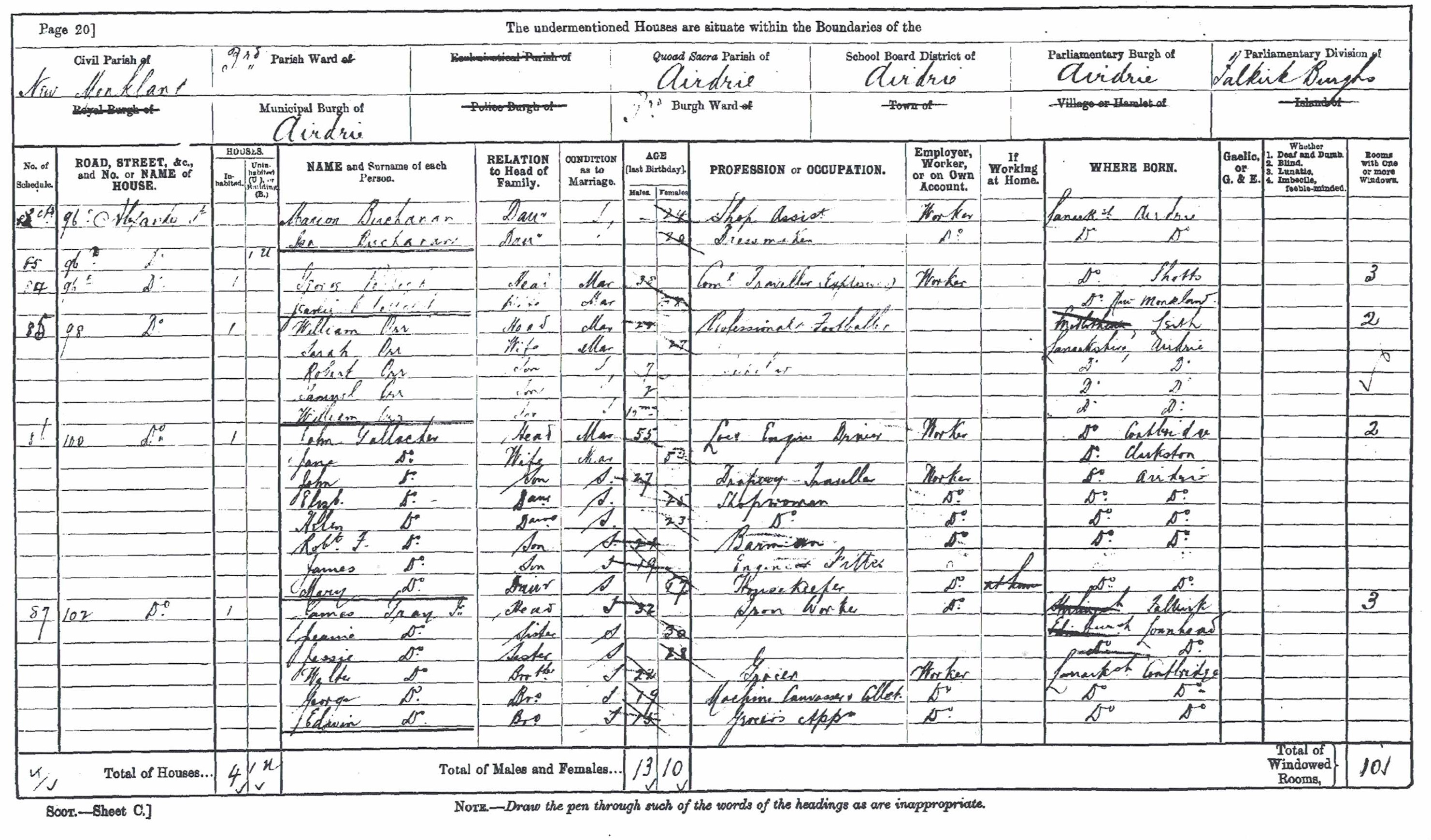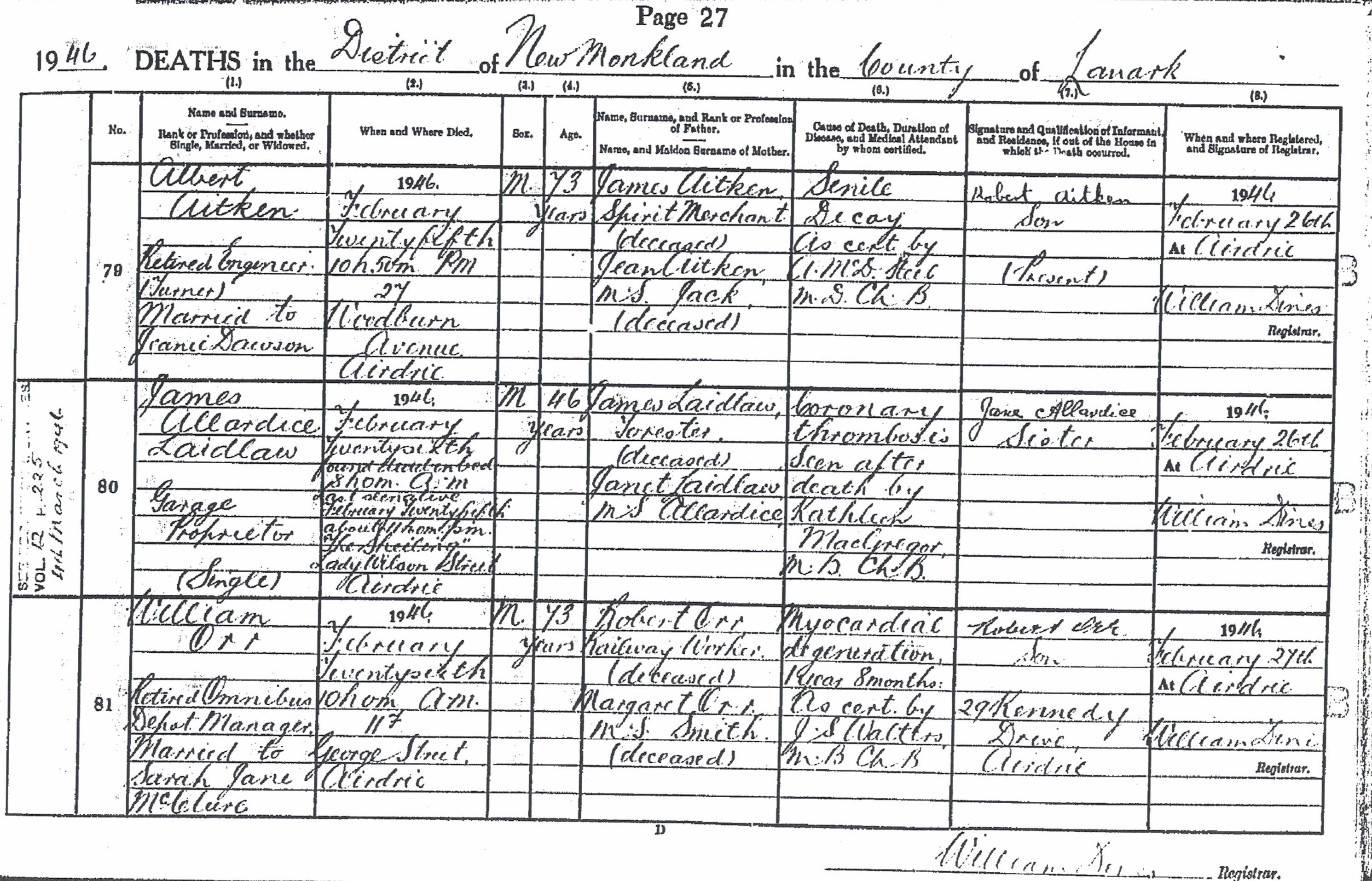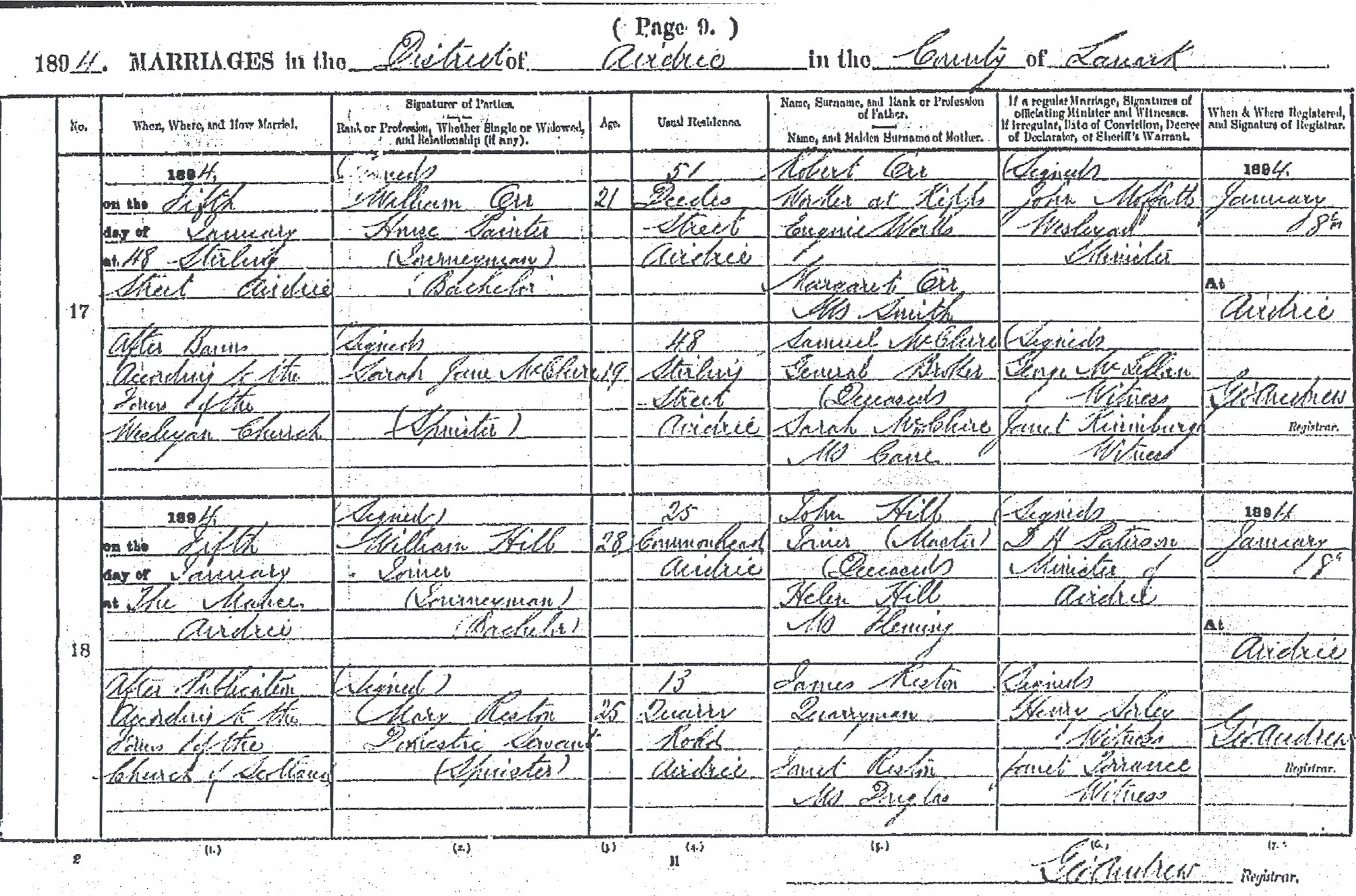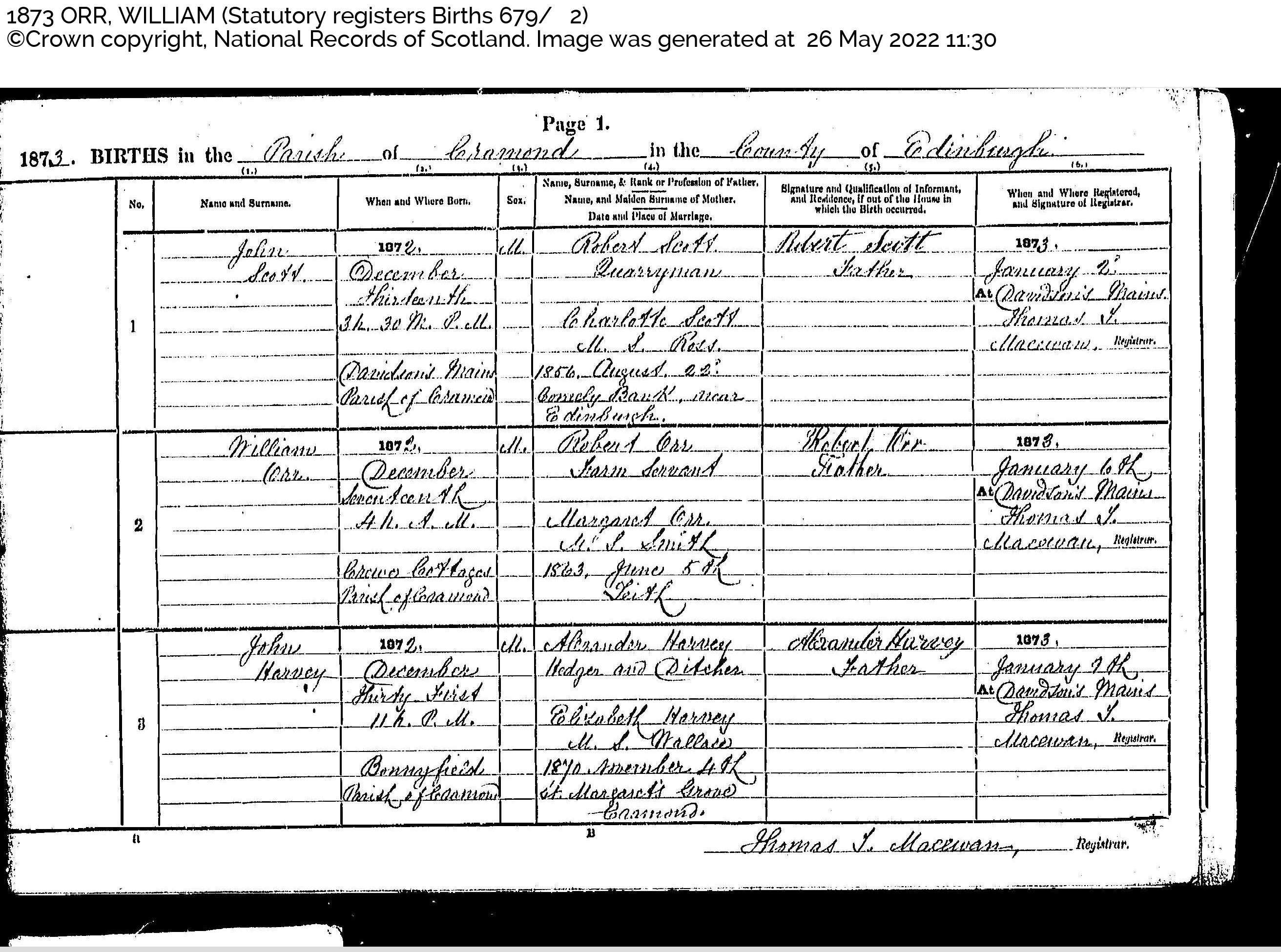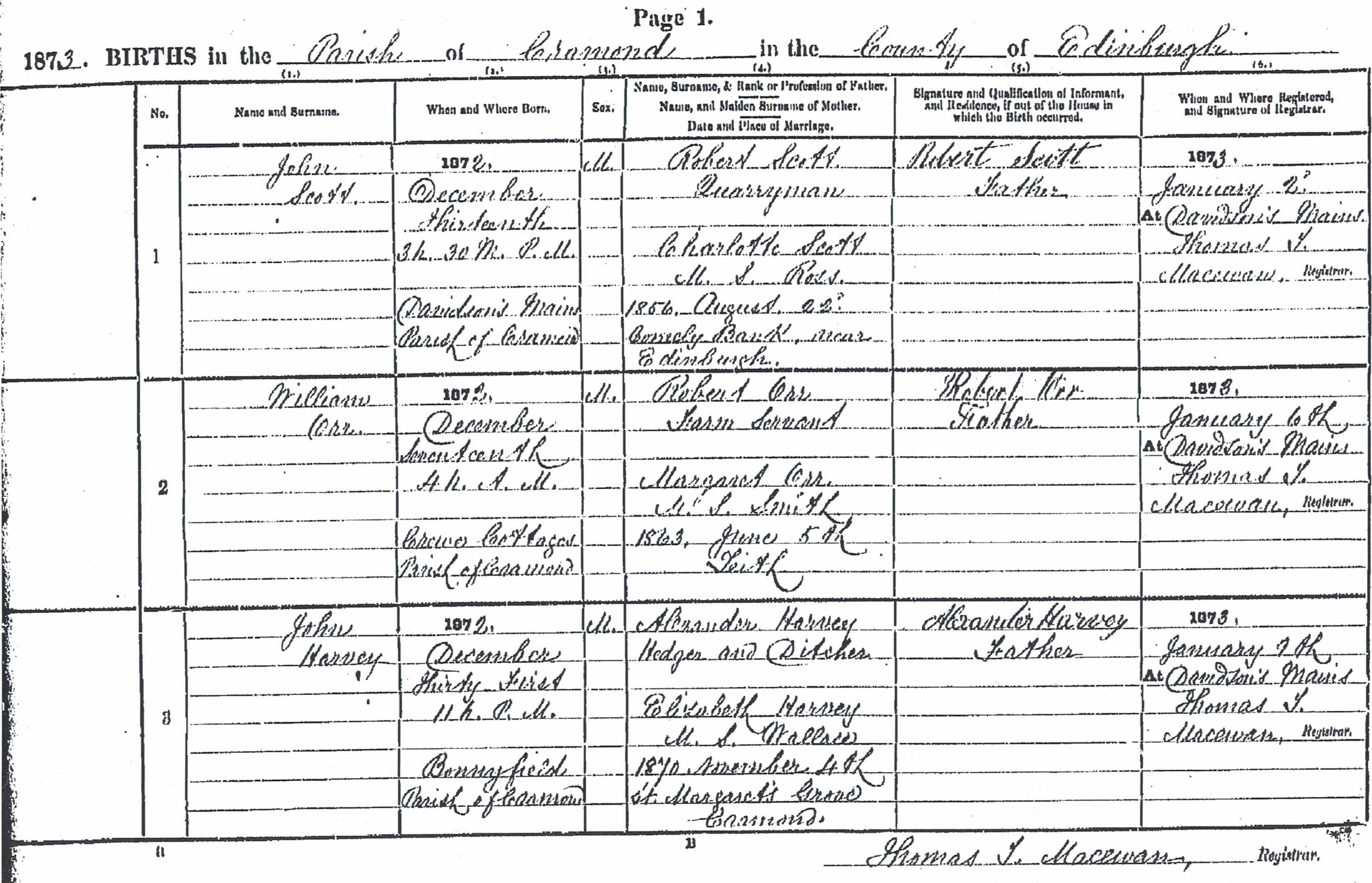O | Player Pics | A-Z of Players
Personal
Fullname: William Orr
aka: Willie Orr
Born: 17 December 1872
Died: 26 February 1946
Birthplace: Cramond (Edinburgh)
Signed: 1 May 1897
Left: 1908 (retired)
Position: Defender, Left-back
Debut: Celtic 4-1 Hibernian, League, 4 Sep 1897
Internationals: Scotland
International Caps: 3 Caps
International Goals: 0
Biog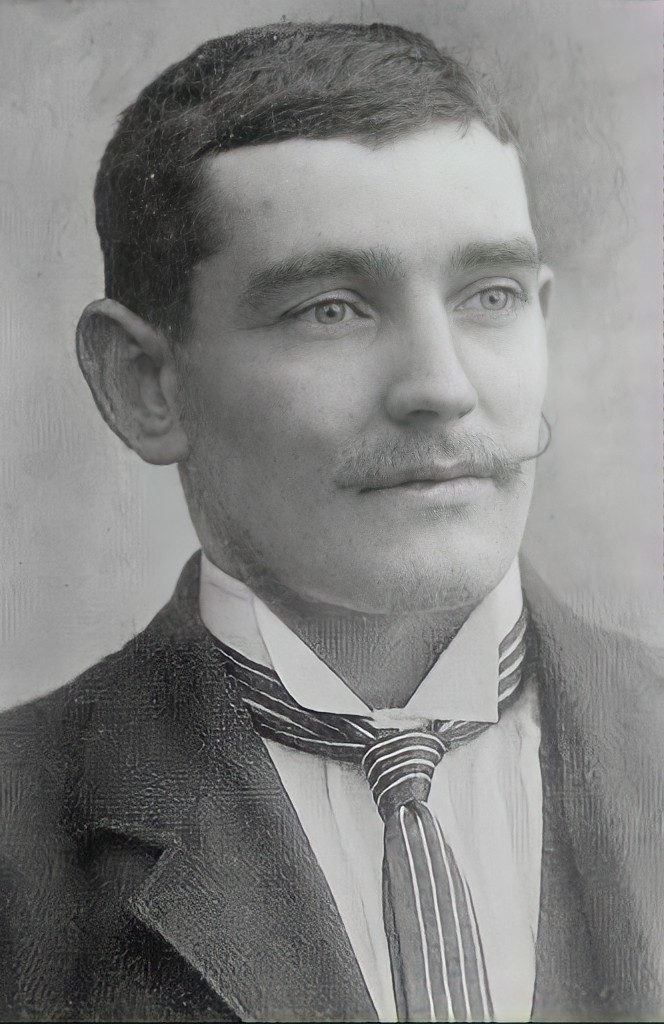
Willie Orr began his football career at Airdrie Fruitfield and then Airdrie before heading south.
He signed for Celtic on 1st May 1897 from then top rated English side Preston North End, as was one of several high profile players signed in the immediate wake of the club converting to a limited company. He was one of the ‘dons‘ in that recruitment run.
Left-back Orr made his debut in a 4-1 home drubbing of Hibernian in a league tie on 9th September 1897, and was to remain at Celtic for around 9 years.
Born in Cramond (Edinburgh, he grew up to become an assured performer and his thoughtful but energetic approach to a game quickly made him a great asset to Celtic.
At times played at left-half Willie Orr was a skilful and quick player who, for a defender, also had an eye for goal. His pace and timing, coupled with an excellent football brain, made him unquestionably one of the top left-backs in Britain.
He helped Celtic win the league title in his first season and the Scottish Cup the next season, but thereafter Celtic were often playing second fiddle (often to Rangers), so there was a lot for Celtic to still work on.
He built up his experience at Celtic, and was to gather obvious leadership qualities. He was to be made the team captain at Celtic, and led the club to the famous 1904 Scottish Cup final triumph over Rangers and also the league title in 1904/05, 1905/06 and 1906/07.
He was also in the side which relieved Rangers of the 1901 Glasgow Exhibition Cup, when Celtic beat them 3-2 at Cathkin Park. Although when Celtic played Third Lanark in the Glasgow Cup final in Oct 1902 and lost 3-0 it was a case of that:
“Orr missed his train and Celtic the Cup”.
Season 1903/04 was probably the pivotal season for Willie Orr at Celtic. Prior to this season, he had been a stout defender, with only one goal per season. Notably, in this season he chipped in with seven goals, with three doubles. Two of his doubles were in two consecutive league games in the season, 3-0 v Queen’s Park & 4-2 v Dundee. It showed a growing confidence in the player and he was to add more goals through the rest of his time at Celtic, and could possibly be another factor that helped form and kick-off greater things for Celtic.
That Scottish Cup success was to be the beginning of the first golden era for the club, and he was another key stalwart of this period, helping the First Team on their way to a then record six league titles in a row. The 1904/05 league title challenge even included an additional play-off match to find the title winner after both Celtic & Rangers ended the season with the same points tally.
As a mark of recognition to Willie Orr, only months after the aforementioned legendary 1904 Scottish Cup final victory against Rangers, Willie Orr was honoured with a well deserved benefit match, played on the 22nd August 1904, at Celtic Park. There was, according to the Glasgow Herald, “a good attendance” at the match, which saw Celtic play out a goalless draw with Queen’s Park.
One of his finest moments was scoring a penalty in the 3-0 victory over Hearts in 1907 to win the Scottish Cup in the final, and helped seal the league & cup double for Celtic. Peter Somers scored the other two. As it was to be his last full season with Celtic, and in practise the end of his playing career, it was a fine way to cap off his long tenure both at Celtic and within Scottish football.
His last match was a single league game in season 1907/08 in Sep 1907, but Celtic lost 2-1 to Aberdeen. Still Celtic went on to win the league title so no damage done.
He only managed to score one goal v Rangers in his time at Celtic, in a 3-2 league defeat away in October 1905, but Celtic still went on to win the title that season. The added note that this penalty had the distinction of being the first penalty awarded for Celtic in the league at Ibrox.
He was recognised by the national side with three caps: 3-0 win v Ireland (1900), 2-0 loss v Ireland (1903) and a 1-1 draw v Wales (1904).
He eventually retired from play in 1908 after 212 league and Scottish Cup appearances scoring 23 goals and is rightly remembered as being a true Celtic great.
Management career
Willie Orr moved into management after his playing career and returned to Airdrie in 1921. His leadership qualities came to the fore, as Airdrieonians finished runners-up in the league in his second season, the club’s highest ever league finish and a position he would achieve for each of the following four seasons, narrowly missing out on the title each time. He also led Airdrieonians to the club’s only ever major honour, the Scottish Cup in 1924.
He then moved to Leicester in what was a golden period for the club, finishing runner-up in the top tier in 1929 (their best until the club’s incredible top tier league title in 2016). It seemed as if he was preset to take second place as manager and never the title wherever he managed.
As Celtic began a slow decline from their prior domestic hegemony during the 1920’s, which was to accelerate over later years, the question could be asked if Celtic missed a trick by not looking to take on Willie Orr as the First Team manager or in some other senior capacity in the coaching staff? It was never going to be easy as Willie Maley was not easily budged over, but in retrospect it was possibly another lost opportunity for Celtic.
He later returned up north to Falkirk, but was banned for life in 1935 by the SFA for a bribery scandal, where allegedly he offered Bobby Russell not to turn out for Ayr against Falkirk in March 1935.
Although the ban was lifted in 1937, Willie Orr never returned to senior level football. The game was likely a touch poorer for it.
He moved on to work as a bus depot manager in Crieff with Alexander’s Buses.
He passed away in 1946. He should be very fondly remembered as a pivotal Celtic captain in the club’s history.
Playing Career
| APPEARANCES | LEAGUE | SCOTTISH CUP | LEAGUE CUP | EUROPE | TOTAL |
| 1897-1908 | 165 | 47 | n/a | n/a | 212 |
| Goals: | 17 | 6 | – | – | 23 |
Major Honours With Celtic
Scottish League
Scottish Cup
Pictures
Links
Forums
Notes
- Various sources (including this page) had incorrectly put Willie Orr’s dates & Birthplace as : Born: 20 June 1873. Further research has corrected this to 17 Dec 1872. Born in Cramond (County of Edinburgh). See below & https://www.tapatalk.com/groups/celtic_graves/orr-william-1897-1907-100-t1523.html.
- Willie Orr did NOT play in Celtic’s 1898-99 Scottish Cup run to the title with Celtic defeating Rangers 2-0 in the final. Interestingly Willie Orr didn’t play in the final but still received a winner’s medal. Presumably an additional medal commissioned by the club. It went up for auction in Sep 2021, and sold for £1500. The winning team received £20 along with their medal (est £2666 in 2021 money). see: https://www.the-saleroom.com/en-gb/auction-catalogues/graham-budd-auctions-ltd/catalogue-id-srgrah10030/lot-a4761425-6694-4794-a8c6-ad8b00d72abe
- David Potter has given us an explanation on why Willie Orr was given a medal given that he didn’t play in the match and coincidentally the official Celtic website featured Willie Orr in a player profile last Saturday and therein confirms the injury to the player in the 1899 Scottish Cup Final. “I can only assume that extra medals were struck, and that Willie given one. He had played in all the other Scottish Cup games that season but missed the final, his left half place being taken by Alick King. “He was injured, for this Final and my guess is that the club struck an extra medal for him because they felt that he had done enough in the other games to deserve a medal. He was one of the best of the early Celts, and is sometimes underestimated,” the Celtic Historian added. https://thecelticstar.com/mystery-solved-as-celtic-legends-scottish-cup-winners-medal-sells-at-auction-for-1500



Articles
Evening Telegraph – Thursday 28 February 1946
FAMOUS CELTIC PLAYER m^ ent Celtic player of the early 1900’s, Willie Orr was buried to-day in his home town of Airdrie. played his first senior games with Preston North End before joining the Parkhead brigade and formed one of Celtic’s best combinations of the period, which J v as Sinclair; McLeod, Orr; Young, Lonie, Hay; Kivlichan, McMenemy, Quinn, Somers, Hamilton. When he retired from the playing field became manager to Leicester City. Returning to Scotland, he was manager for Airdrieonians for a period and then at Brockville with Falkirk 1′ or many years he was manager of Messrs Alexander’s Bus Transport at Crieff.
Leicester manager 1926-32
This season, Club Historian John Hutchinson continues to highlight the careers and achievements of the key managers in the Club’s history, this time profiling Willie Orr.
When he was appointed as Leicester City’s Secretary-manager in July 1926, Willie Orr was by far the most distinguished ex-player to manage the Club. He then guided City to their best ever league position until the Premier League trophy was lifted in 2016.
Despite these achievements, he is probably one of the least known of all Leicester City’s managers.Orr had made his name as a left-back for Aidrieonians before moving to Preston North End in February 1894. Three seasons later he joined Celtic where for the next 10 years he achieved remarkable success as a player.Celtic won the Scottish League in 1898, 1905, 1906 and 1907 and the Scottish Cup in 1900, 1904 and 1907. He was Celtic’s captain from 1902-1906 when he helped nurture what was essentially a young team.
During this time he also won three international caps for Scotland.Orr returned to his old club Airdrie in 1909, first as a Director until 1921 and then as Secretary-Manager. Between 1923 and 1926 he guided Airdrie to four successive runners-up spots (their highest ever league positions) as well as winning the Scottish Cup for the only time in their history in 1924.In April 1925 Willie Orr brought his Airdrie side down to Filbert Street to play a benefit game (for Leicestershire County Cricket Club) against Peter Hodge’s Leicester City, the newly crowned Second Division Champions.
The Club’s archives contain a menu card from the dinner held at the Grand Hotel to mark this occasion. It contains the autographs of the Airdrie players, including that of Hugh Gallacher who later became one of the biggest names in football with Newcastle United, Chelsea and Scotland.A little over a year later, in July 1926, Willie Orr became Leicester City’s manager following Hodge’s decision leave Filbert Street. Orr’s dinner with the Leicester City directors in May 1925 may well have had a bearing on their decision to appoint him as their new manager.
In the three seasons following his appointment Orr, building Hodge’s foundations, took Leicester City to seventh, third and then second in the old First Division. To a team already containing the likes of Adam Black, Arthur Chandler, Johnny Duncan, Ernie Hine and Hughie Adcock, Orr added current and future England internationals Sid Bishop, Len Barry and Sep Smith.
Unfortunately, Orr’s unbroken run of success at Airdrie and Leicester City ended during the three seasons following the high spot of 1929 when his City team came to within a point of being crowned League champions. He resigned in January 1932 following a run of six successive defeats which saw Leicester City near the bottom of the table.
His unsuccessful streak continued at his next club Falkirk. His three years there as Secretary-manager ended in relegation and in a lifetime ban from football following his attempt to bribe an Ayr United player not to play against Falkirk in a vital relegation match.
The ban was lifted in February 1937, but Orr never returned to football,
He died aged 72 in April 1946.
Info from: https://www.tapatalk.com/groups/celtic_graves/orr-william-1897-1907-100-t1523.html



